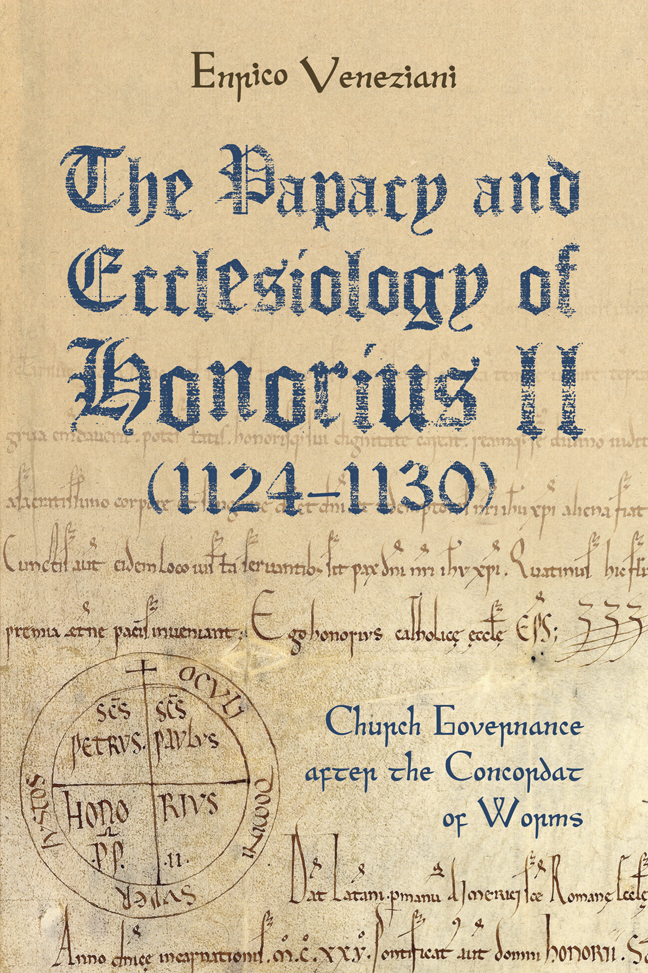 The Papacy and Ecclesiology of Honorius II (1124-1130)
The Papacy and Ecclesiology of Honorius II (1124-1130) Published online by Cambridge University Press: 09 January 2024
This chapter will continue the analysis of Roman primacy by focusing on the tactics that Honorius's papacy used to assert its superiority vis-à-vis other ecclesiastical institutions. Most of these strategies were first ‘created’ or changed to meet the requirements of a papacy claiming supremacy over the whole Church as early as the second half of the eleventh century. The process was not linear but was dictated by the perspective and circumstances in which each pope found himself. The chapter examines the instruments which Honorius's papacy took from previous pontiffs, how this papacy adapted them for its own use, and how and when they were implemented, considering the context in which they were used and, where possible, their effectiveness.
The chapter is divided into seven parts, each focusing on a specific instrument: Honorius's relationship with Canon and Roman law; the redefinition of regular canons; the office of papal legates; the celebration of councils; the visitatio ad limina; the pallium; and the imitatio imperii.
A lawyer pope?
The focus of this section is on the increasing role of Rome as the jurisdictional apex of the Church, and the important role played by the papal Curia in the 1120s. Further examples will be introduced since some scholars, such as Emanuele Conte and Chris Wickham, consider Innocent's pontificate to be the sole turning point in this debate. However, elements of practice that were later given greater coherence under Innocent II are already visible under Honorius, at least in their embryonic stage. Particular attention will be given to the context in which the pope operated, since there was no schism to be a driving force for the changes, as was to be the case for his two successors. Understanding the use of both Canon and Roman law in Honorius's letters will help inform the ongoing debate on the period regarding how Gratian's Decretum was created and how the law schools developed.
As mentioned in the Introduction, information on Honorius prior to his appointment as cardinal-bishop of Ostia is scarce; therefore, it is very difficult to speculate about his formative years.
To save this book to your Kindle, first ensure [email protected] is added to your Approved Personal Document E-mail List under your Personal Document Settings on the Manage Your Content and Devices page of your Amazon account. Then enter the ‘name’ part of your Kindle email address below. Find out more about saving to your Kindle.
Note you can select to save to either the @free.kindle.com or @kindle.com variations. ‘@free.kindle.com’ emails are free but can only be saved to your device when it is connected to wi-fi. ‘@kindle.com’ emails can be delivered even when you are not connected to wi-fi, but note that service fees apply.
Find out more about the Kindle Personal Document Service.
To save content items to your account, please confirm that you agree to abide by our usage policies. If this is the first time you use this feature, you will be asked to authorise Cambridge Core to connect with your account. Find out more about saving content to Dropbox.
To save content items to your account, please confirm that you agree to abide by our usage policies. If this is the first time you use this feature, you will be asked to authorise Cambridge Core to connect with your account. Find out more about saving content to Google Drive.